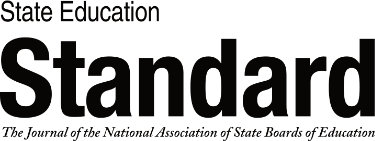Most states claim academic rigor and career readiness as goals for all their students. But as school systems continue tracking students into higher or lower levels of academic coursework and into career and technical courses that lack rigorous, real-world assignments, they reflect an apparent underlying belief that their students’ abilities are fixed—and fixed early in life.
There are districts and schools that instead operate from an assumption that most students can learn at high levels when engaged in meaningful, challenging assignments in both academic and career pathway courses. What does that look like? I encourage members of state boards of education to visit high schools in their state and beyond, where they can see effective strategies.
Telltale Signs of Rigor and Career Readiness in High School
Also In this Issue
A New Architecture for High School Learning
By Russlynn Ali and Timothy F.C. KnowlesState leaders should retire the Carnegie unit and open the door for high school designs that ensure learning is engaging, relevant, experiential, and competency based.
Telltale Signs of Rigor and Career Readiness in High School
By Gene BottomsState boards can take a lesson from schools that already dish up rigorous assignments in college- and career-ready courses alike and ensure more schools do it.
How Rhode Island Increased the Value of a High School Diploma
By Angélica Infante-GreenNew graduation requirements aim to align with college admission standards and address inequities in college and career readiness.
Access to Data Is Key to Navigating High School and Beyond
By Jennifer Bell-EllwangerSurveyed students report being at sea on postsecondary options and the progress they are making toward their goals.
Merging High School and College: The Early College High School Model
By Julie A. EdmundsSix elements in statewide law and policy pave the way for effective programs that help more students thrive in college courses while they are still in high school.








 i
i
 i
i